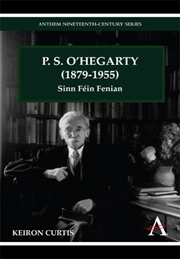Chapter One - The Fenian Past
from Part I
Published online by Cambridge University Press: 05 March 2012
Summary
Civic nationalism maintains that the nation should be composed of all those – regardless of race, colour, creed, gender, language or ethnicity – who subscribe to the nation's political creed. This nationalism is called civic because it envisages the nation as a community of equal rights bearing citizens, united in patriotic attachment to a shared set of political practices and values.
The men of ninety-eight put out of their organisations and their propaganda all questions of class or race or religious beliefs, they asked no man to rally to them for the sake of Catholicity or Protestantism, peasant or landlord, Gael or Norman or Cromwellian.
Theobald Wolfe Tone, pioneer of Irish Republicanism, believed the best way to end sectarianism among ‘Catholic, Protestant and Dissenter’ was to drive English rule out of Ireland. A backer of the Universalist ideas born of the Enlightenment, Tone rejected discrimination and institutionalized religion, believing instead that political destinies should rest with the nation's citizens. Thus, he saw Republicanism and its championing of civil liberties and representative government as legitimizing statehood. However, the divisions Tone and the United Irishmen set out to heal nonetheless proved crucial factors in deciding the disastrous outcome of the expected patriotic 1798 Rebellion, which not only failed to achieve military defeat of England but also deepened sectarian hatreds.
- Type
- Chapter
- Information
- P. S. O'Hegarty (1879–1955)Sinn Féin Fenian, pp. 13 - 26Publisher: Anthem PressPrint publication year: 2010



